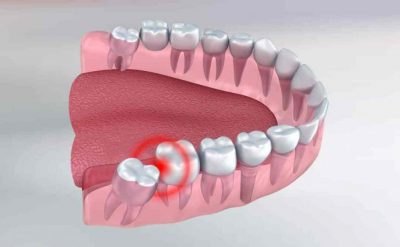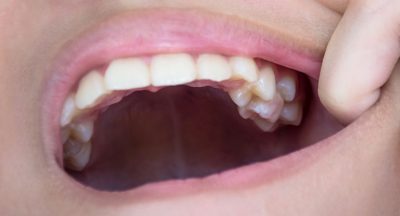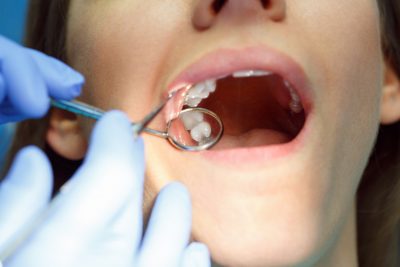With Age Comes Wisdom, Specifically Your Wisdom Teeth

Your mouth goes through many changes in your lifetime; one major dental milestone that usually takes place between the ages of 17 and 21 is the appearance of your third molars.
Historically, these teeth have been called wisdom teeth because they come through at a more mature age.
When healthy wisdom teeth come in correctly they will help you chew. However, most times they crowd your teeth and cause discomfort as your wisdom teeth start coming through. If you experience pain, see your dentist immediately.

Crowded Wisdom Teeth left Untreated
Teeth Need Room to Grow

Wisdom teeth can lead to problems if there isn’t enough space for them to surface or they come through in the wrong position.
If your dentist says your wisdom teeth are impacted, he or she means they are trapped in your jaw or under your gums.
As your wisdom teeth make their way through your gums, your dentist will be monitoring your mouth for signs of the following:
Reasons to Have Your Wisdom Teeth Removed

Every patient is unique, but in general, wisdom teeth may need to be removed when there is evidence of changes in the mouth such as:
Your dentist may also recommend removal of wisdom teeth as part of treatment for braces or other dental care.
Before making any decisions, your dentist will examine your mouth and take an x-ray. Together, you and your dentist can discuss the best course of treatment.
Keeping Your Wisdom Teeth?
Wisdom teeth that are not removed should continue to be monitored because the potential for developing problems later on still exists. As people age, they are at greater risk for health problems—and that includes potential problems with their wisdom teeth.

Be sure to, floss around your wisdom teeth and visit your dentist regularly. Regular dental visits allow your dentist to evaluate your wisdom teeth and your overall dental health.
In Summary
Your dentist will advise you on what is best concerning your wisdom teeth!
Pay attention to pain and discomfort; do not wait, be proactive and call your dentist immediately when you feel the slightest discomfort.
See your dentist regularly for cleanings and check-ups. Your teeth are vital to your overall health.
Book an appointment today!
Calzada Saratoga 189
Algodones, Baja California, Mexico
928-239-5674